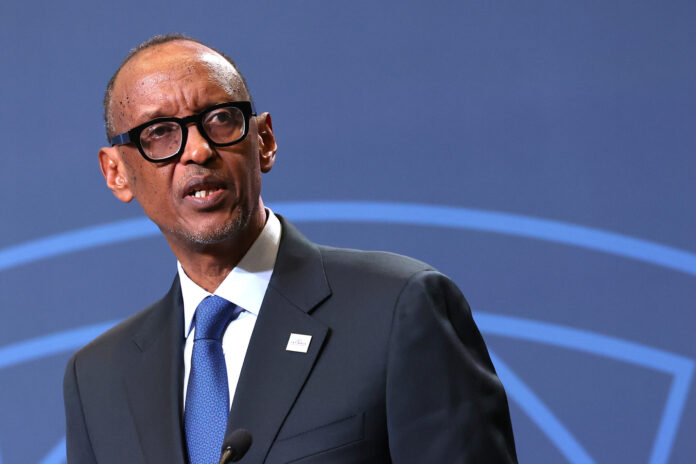Some say that Rwanda is an easy country to govern because it has people who speak one language, share the same culture, and are united.
But when you look at Rwanda’s history, especially after the 1994 Genocide against the Tutsi, you realize that leading Rwanda requires wisdom, extraordinary capacity, and an exceptional love for the country.
Rwandans of all categories were deeply affected by the country’s history, which shaped their thinking and mindset based on those experiences.
Therefore, being the President of Rwanda requires a unique person, someone who has shown that they are devoted to the country, who has the ability to understand the citizens and represent them, and who is even willing to put their life at risk for the sake of the nation.
This is a person who gives hope that Rwanda will never return to its troubled past, and that the safety, sovereignty, and unity of Rwandans will always be upheld. When that is the case, it leads to deep love from the citizens.
As ideas continue to circulate on social media about the possibility of replacing the President of the Republic of Rwanda—just like in other countries, especially in Africa—there are concerns that things could fall back: poverty, insecurity, favoritism, looting of national resources, and more. There are many who could lead in such a way.
But finding someone who can replace President Kagame and continue what he has achieved, maintaining the path of unity, development, and good governance, is not easy. Such a leader must be trusted, and capable of defending the interests of all people without discrimination.
President Kagame came to power after President Pasteur Bizimungu, and both were appointed by the Rwandan Patriotic Front (RPF-Inkotanyi).
Before them, Rwanda was led by different presidents: Dominique Mbonyumutwa, Grégoire Kayibanda, Juvénal Habyarimana, and Théodore Sindikubwabo. All these governed a country that had been deeply wounded by divisions, poverty, ignorance, and discrimination—factors that led to the 1994 Genocide against the Tutsi.
The RPF-Inkotanyi, led by then Major General Paul Kagame, came and liberated a country that was falling apart. In 1994, after stopping the genocide, the country was in deep crisis: people had been killed, others fled, infrastructure was destroyed, survivors needed justice and support, orphans and widows were heading households—on top of that, there were issues of insecurity and extreme poverty.
In the past 31 years, Rwanda has shown significant transformation. Today, it is one of the most secure countries in Africa, with good governance, a fast-growing economy, modern infrastructure, satisfied citizens, and high levels of cleanliness and technology.
The indicators of development are many: national unity and cohesion is at 97%, the economy grows at a rate of 10.9% per year, 96% of the population has health insurance, 75% have electricity, 82% have clean water, 78% own mobile phones, and 99% use digital payment systems.
In Parliament, women make up 61.3%—making Rwanda the top country in the world for female representation in Parliament. Rwanda is also ranked among the top 10 safest countries in the world.
Rwanda also stands out in its care for the vulnerable: programs like Girinka (one cow per poor family), building houses for the needy, school feeding programs, and setting up childcare centers are clear examples.
President Kagame is one of the few leaders capable of governing a country like Rwanda.
He is an exceptional person who works selflessly, shows deep love for Rwanda and its people. He is ready to sacrifice his life to protect them, and he is someone Rwandans can trust to defend them against anyone who might threaten them—whether from within or outside the country.
He led the liberation struggle and stopped the 1994 Genocide against the Tutsi, but he also showed a spirit of forgiveness, promoted unity and reconciliation, supported education for all, championed women and youth, and rejected injustice.
He has a culture of holding anyone accountable regardless of who they are—he doesn’t play favorites, he dislikes luxury, loves the country, values family and work, and has a long-term vision.
Whoever will replace him—when the time comes—must meet seven essential qualifications:
They must have played a role in Rwanda’s leadership history since 1990,
Love the unity of Rwandans,
Have the ability to defend the nation’s interests,
Possess knowledge and experience,
Be a person of integrity,
Not be influenced by foreign powers, and
Be ready to serve the people selflessly.
Note: The content of this article represents the personal views of ITYAZO journalist, Kwizera Yamini.




